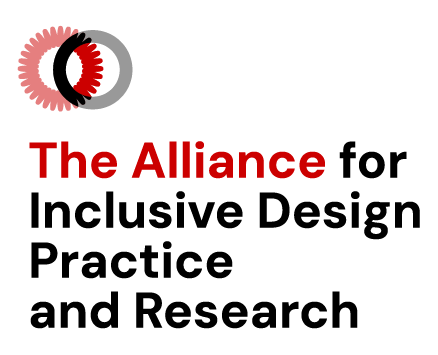
History
For decades, the Center for Universal Design (CUD) at NC State has been the global home of Universal Design, a movement aimed at creating products and environments to be usable by all people to the greatest extent possible, without the need for adaptation or specialized design. Today, we are working to revitalize and rebrand the CUD as the Alliance for Inclusive Design Practice and Research (the Alliance) in collaboration with industry partners, expert advisors, among others.
The 7 Principles of Universal Design
One of the most prolific deliverables of the early CUD was the 7 Principles of Universal Design. The Alliance will continue to champion this framework across all activities and seek opportunities to expand on additional Inclusive Design strategies. For a full list of Universal Design Guidelines, please visit: https://design.ncsu.edu/research/center-for-universal-design/ .
PRINCIPLE ONE: Equitable Use
The design is useful and marketable to people with diverse abilities.
PRINCIPLE TWO: Flexibility in Use
The design accommodates a wide range of individual preferences and abilities.
PRINCIPLE THREE: Simple and Intuitive Use
Use of the design is easy to understand, regardless of the user’s experience, knowledge, language skills, or current concentration level.
PRINCIPLE FOUR: Perceptible Information
The design communicates necessary information effectively to the user, regardless of ambient conditions or the user’s sensory abilities.
PRINCIPLE FIVE: Tolerance for Error
The design minimizes hazards and the adverse consequences of accidental or unintended actions.
PRINCIPLE SIX: Low Physical Effort
The design can be used efficiently and comfortably and with a minimum of fatigue.
PRINCIPLE SEVEN: Size and Space for Approach and Use
Appropriate size and space is provided for approach, reach, manipulation, and use regardless of user’s body size, posture, or mobility.
Despite its global impact, the CUD has been inactive for nearly 15 years due to a lack of funding and limited leadership. Given the persisting need to advance equity in the design of our buildings, spaces, and communities, now is the time to re-activate the CUD to once again serve as a hub for unparalleled guidance on inclusive environments.
This initiative focuses on a re-envisioned version of the Center for Universal Design.
The new name signifies an evolution of Universal Design – which is historically rooted in addressing physical disabilities – toward Inclusive Design, a more targeted approach that aims to ensure inclusive environments comprehensively across ranging disabilities and user needs. The new name also highlights The Alliance’s intent to collaboratively influence industry practice and application of Inclusive Design and to conduct large-scale systemic research that shapes the future of Inclusive Design.
Understanding the opportunity at hand, we sought and were awarded a $25,000 seed grant from the NCSU Foundation to explore relaunching the CUD in September 2023. Using the grant funds, a public-facing symposium was held on March 21, 2024, engaging researchers, academics, policymakers, advocates, and other professionals working in the fields of Universal Design and Inclusive Design. An incredible 200+ attendees registered for the event, which featured both panel discussions among industry leaders and audience engagement.
Spring 2024 Symposium
For more information about the Spring 2024 Symposium, In Pursuit of Equity: A Symposium to Re-envision the Center for Universal Design, including recordings of the sessions, transcripts, and bios of the speakers, visit the College webpage.
